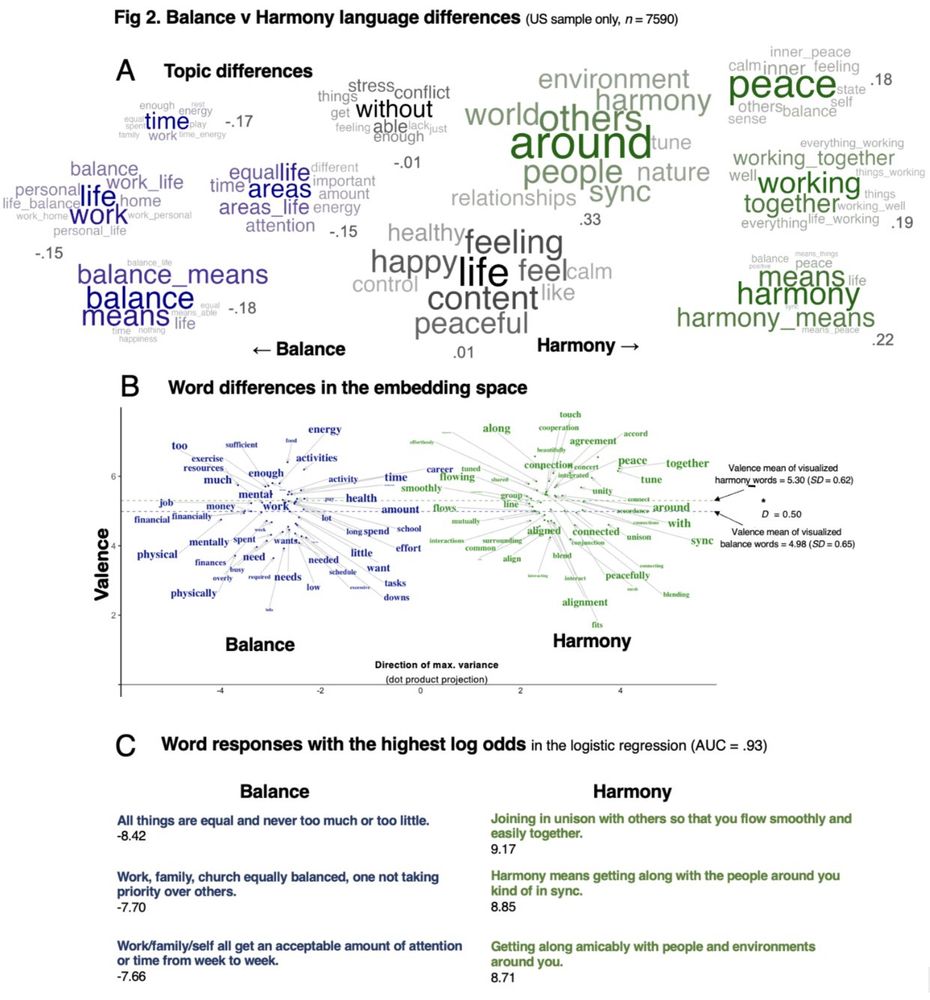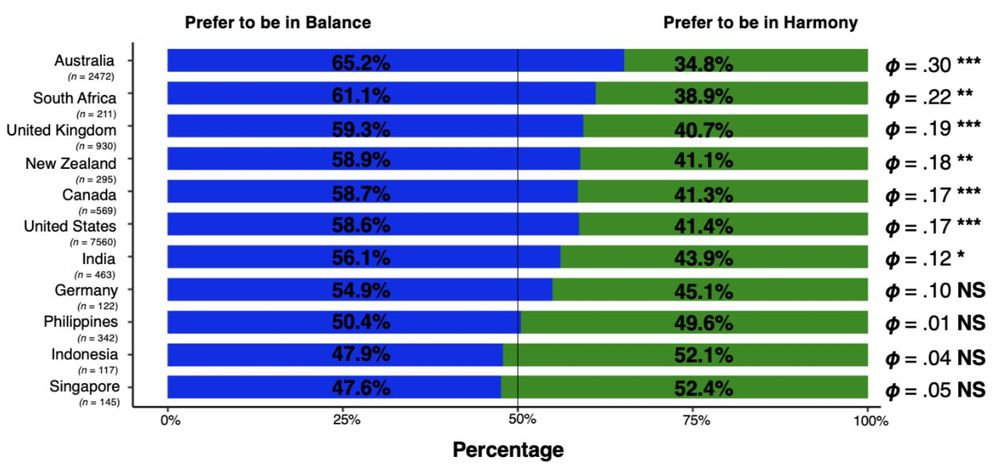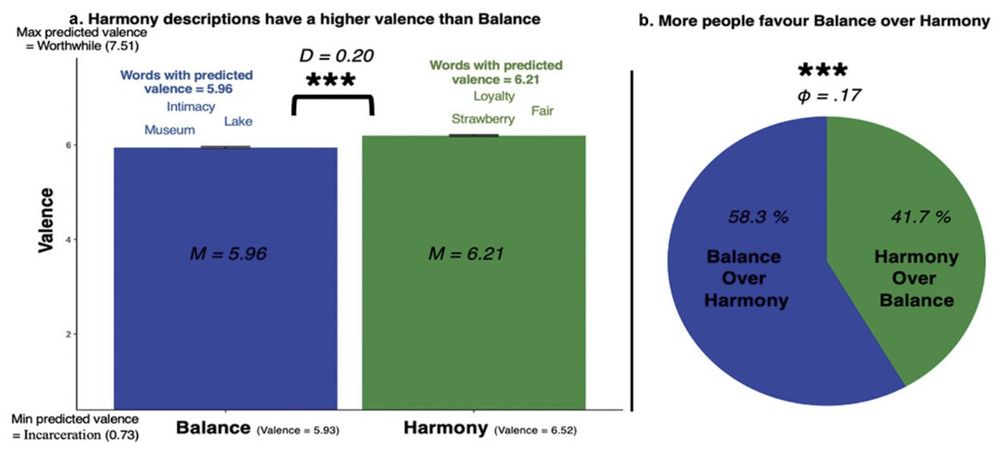



Now it takes <10 minutes using no brain power! ⚡️
Now it takes <10 minutes using no brain power! ⚡️
Tim Lomas, @oscarkjell.bsky.social, Ryan Niemiec, James Pawelski, Noah Padgett and Tyler VanderWeele on this paper 🙌
Tim Lomas, @oscarkjell.bsky.social, Ryan Niemiec, James Pawelski, Noah Padgett and Tyler VanderWeele on this paper 🙌
Bottom line✅:
Balance = life’s parts working together ⚖️
Harmony = quality of relationships 🫂
They’re more distinct than previously assumed.
www.tandfonline.com/doi/full/10....

Bottom line✅:
Balance = life’s parts working together ⚖️
Harmony = quality of relationships 🫂
They’re more distinct than previously assumed.
www.tandfonline.com/doi/full/10....
The model agrees 🤖:
Using machine learning, we classified balance vs. harmony definitions with an AUC of 0.93.
That’s very high 🚀—meaning the concepts are easy to tell apart.
The model agrees 🤖:
Using machine learning, we classified balance vs. harmony definitions with an AUC of 0.93.
That’s very high 🚀—meaning the concepts are easy to tell apart.
How people define them:
Harmony = relationships—mostly social 👥, but also with nature 🌳 and the world 🌍.
Balance = life’s big picture—work 💼, family 👨👩👧👦, self , etc.
Distinct patterns in people’s words. 🔍
pbs.twimg.com/media/GjbJwQ...

How people define them:
Harmony = relationships—mostly social 👥, but also with nature 🌳 and the world 🌍.
Balance = life’s big picture—work 💼, family 👨👩👧👦, self , etc.
Distinct patterns in people’s words. 🔍
pbs.twimg.com/media/GjbJwQ...
Key finding #2:
Where you live matters 🗺️
Preference for balance = stronger in sparsely populated countries (e.g., Australia 🇦🇺)
Preference for harmony = stronger in densely populated countries (e.g., Singapore 🇸🇬)
More people around you? Harmony matters more. 🫂
pbs.twimg.com/media/GjbI5Y...

Key finding #2:
Where you live matters 🗺️
Preference for balance = stronger in sparsely populated countries (e.g., Australia 🇦🇺)
Preference for harmony = stronger in densely populated countries (e.g., Singapore 🇸🇬)
More people around you? Harmony matters more. 🫂
pbs.twimg.com/media/GjbI5Y...
Key finding #1:
People define harmony more positively than balance. (based on predicted valence in the definitions!)
BUT—more people prefer to be in balance (58.3%) 🤯than in harmony.
Positivity ≠ preference.
pbs.twimg.com/media/GjbIzq...

Key finding #1:
People define harmony more positively than balance. (based on predicted valence in the definitions!)
BUT—more people prefer to be in balance (58.3%) 🤯than in harmony.
Positivity ≠ preference.
pbs.twimg.com/media/GjbIzq...
We asked:
Two open-ended questions:
“What does balance mean to you?”
“What does harmony mean to you?”
One forced-choice:
“Would you rather be in balance or in harmony?”
15,275 people. 154 nations. Big data for big questions. 🌍📊
We asked:
Two open-ended questions:
“What does balance mean to you?”
“What does harmony mean to you?”
One forced-choice:
“Would you rather be in balance or in harmony?”
15,275 people. 154 nations. Big data for big questions. 🌍📊
Why does this matter? 🤔
Life satisfaction & happiness dominate well-being research but are critiqued as:
Western-focused 🌍
Money-driven 💰
Hedonic 😄
Enter balance & harmony—Eastern-rooted, purpose-related, socially focused.
But are they the same thing?
Why does this matter? 🤔
Life satisfaction & happiness dominate well-being research but are critiqued as:
Western-focused 🌍
Money-driven 💰
Hedonic 😄
Enter balance & harmony—Eastern-rooted, purpose-related, socially focused.
But are they the same thing?

